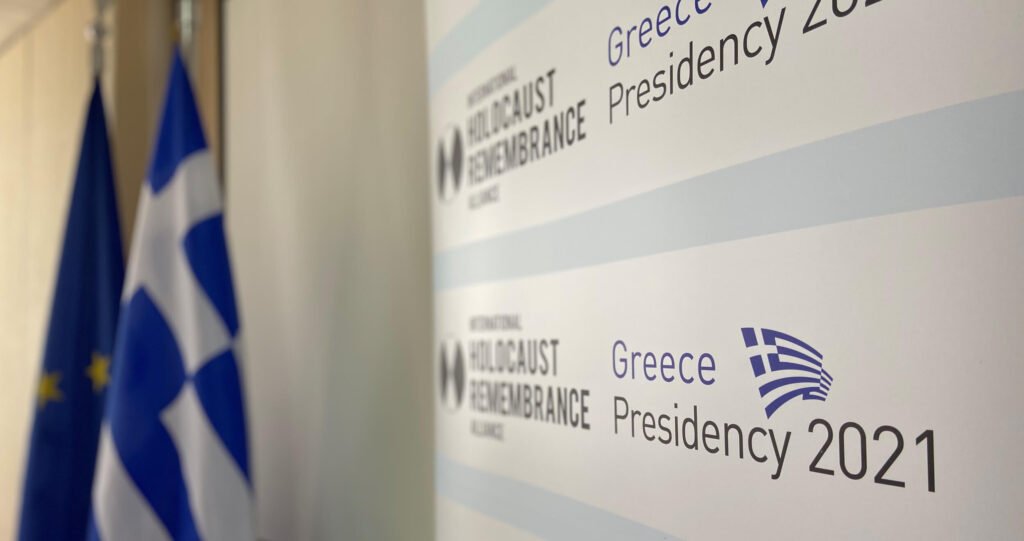Today, we commemorate the victims and survivors of the hatred that was the driving force of a totalitarian, criminal regime and its collaborators.
Absolute responsibility and duty of all of us, who choose to be called heirs of humanitarian and democratic values, is to honour the victims and survivors, to reflect upon their legacy and to act with this in mind.
Today, we commemorate the Jews, as well as the other victims of the Nazi Regime who suffered and died cruelly, inhumanly, all of them victims of an absurd, unthinkable, targeted hatred. We commemorate six million Jews of all ages, six million innocent people, who had committed no crime.
Today, it is also an opportunity to remember the survivors, who have never ceased to remember, for the rest of their lives, the terror and the extreme violence they experienced.
Our remembrance is an elementary imperative.
Equally elementary is our duty to reflect and rethink about the conditions under which the unthinkable happened. So that we will never have to admit again that “I was first seeing the dead and then the murder occurred”, as the Greek Nobel laureate poet, Odysseus Elytis, cautions.
Taking over the annual Presidency of the International Holocaust Remembrance Alliance (IHRA), about a year ago, Greece proposed Education as the leading thread of its mandate. Education is the primary weapon in combating hateful ideologies. With Education we honor the memory of the victims and survivors of the Holocaust in a way which will ensure rethinking on the causes that let it happen and promote taking action against future threats born of totalitarianism.
New threats are more than obvious today, mainly on the digital battlefield, with hate speech, racism, discrimination, antisemitism and Holocaust denial and distortion.
The IHRA has identified Holocaust distortion –the systematic attempts not to question whether the Holocaust happened but to excuse, misrepresent, or minimize its history– as a priority issue; as the greatest contemporary menace to the legacy of the Holocaust. We need a zero-tolerance approach to distortion and we are all responsible to raise awareness.
The Holocaust challenges understanding in a unique way: How can the unthinkable be understood? How can moral judgement be cultivated in the benefit of freedom and democracy, in order to impede the way to totalitarianism, ensuring that the unthinkable will not happen again?
Deeply and strongly believing that Education is the onset of our moral commitment for a world with no more genocide, the Greek Presidency of the IHRA took action devoting the highest of its efforts with the aim of broadening and deepening of initiatives in this field.
Today, honoring the International Holocaust Remembrance Day, we enhance our commitment; because we must not only be ambassadors for Holocaust remembrance. We have to go beyond that. We need to rethink, raise awareness and take action against new threats, like distortion.
